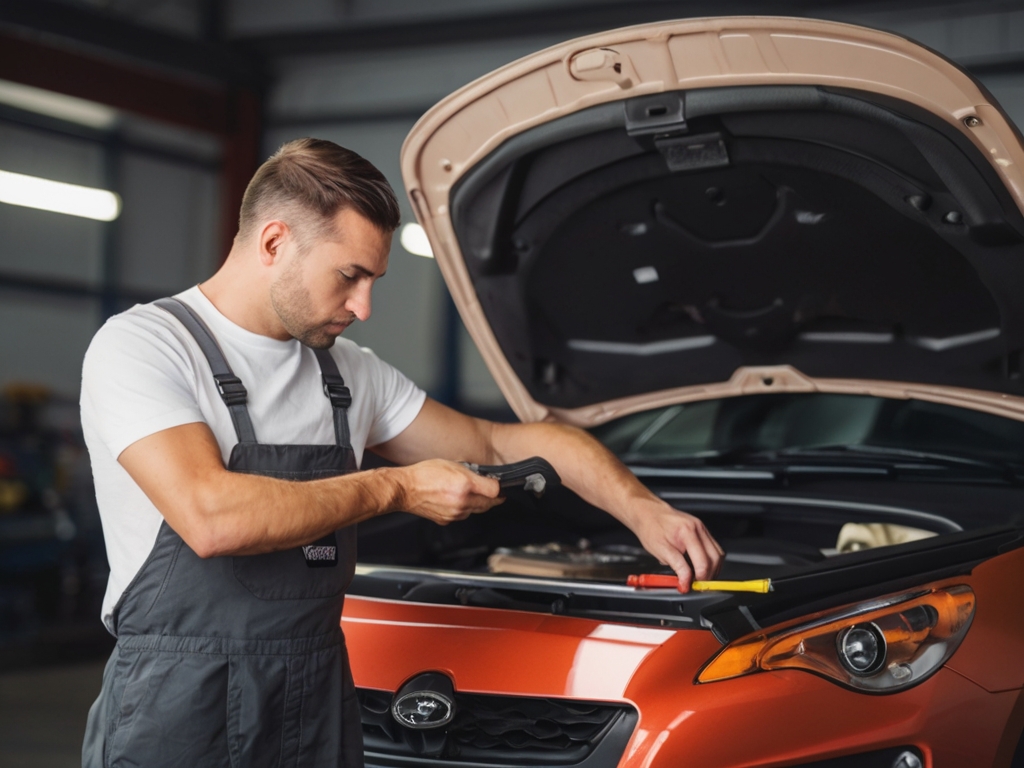
Maintaining your vehicle properly is essential for ensuring its longevity, performance, and safety. Whether you're driving on bustling city roads or navigating rural terrains in African nations, regular vehicle maintenance can save you time, money, and stress. Here are the top 5 tips for maintaining your vehicle effectively.
1. Regular Oil Changes
One of the most crucial tips for maintaining your vehicle is to change the oil regularly. Oil is the lifeblood of your engine, lubricating moving parts and helping to keep the engine cool. Over time, oil can become contaminated with dirt and debris, reducing its effectiveness.
Why It's Important: Neglecting oil changes can lead to increased engine wear and potential engine failure. Regular oil changes help maintain engine efficiency and extend its lifespan.
How Often: Most manufacturers recommend an oil change every 3,000 to 5,000 miles, but you should consult your vehicle’s manual for specific intervals.
2. Check Tire Pressure and Tread
Proper tire maintenance is essential for vehicle safety and fuel efficiency. Under-inflated tires can cause poor handling, increased fuel consumption, and even tire blowouts.
Why It's Important: Correct tire pressure ensures optimal contact with the road, improving traction and handling. Regularly checking tread depth prevents accidents caused by worn-out tires.
How Often: Check tire pressure monthly and before long trips. Inspect tread depth every few months using a tread depth gauge or the penny test.
3. Regular Brake Inspections
Your vehicle's brakes are critical for safety. Worn-out brake pads or malfunctioning brake systems can lead to dangerous situations on the road.
Why It's Important: Regular brake inspections can prevent brake failure, ensuring that your vehicle can stop effectively in emergencies.
How Often: Have your brakes inspected at least once a year or if you notice any signs of wear, such as squealing noises or a spongy brake pedal.
4. Maintain Fluid Levels
Apart from oil, your vehicle relies on several other fluids to operate efficiently, including coolant, brake fluid, transmission fluid, and power steering fluid.
Why It's Important: Maintaining fluid levels prevents overheating, ensures smooth transmission operation, and keeps the steering responsive.
How Often: Check these fluids monthly and top up or replace them as needed, following the manufacturer’s recommendations.
5. Keep the Battery in Good Condition
A dead battery can leave you stranded and is often the result of poor maintenance. Regular battery checks can prevent unexpected failures.
Why It's Important: Ensuring your battery is in good condition helps avoid starting problems and extends the battery’s life.
How Often: Inspect the battery terminals for corrosion and clean them if necessary. Test the battery voltage twice a year and replace it every 3-5 years.
Additional Tips for Maintaining Your Vehicle
Routine Professional Inspections: While you can handle many maintenance tasks yourself, it's important to have your vehicle inspected by a professional mechanic regularly. They can identify and fix issues that you might miss.
Protect Your Vehicle’s Exterior: Regular washing and waxing protect the paint from damage caused by dirt, bird droppings, and harsh weather conditions. This is particularly important in regions with extreme weather.
Follow Manufacturer’s Maintenance Schedule: Your vehicle’s manual includes a recommended maintenance schedule. Adhering to this schedule ensures that all parts of your vehicle are serviced at the right intervals.
Pay Attention to Warning Lights: Modern vehicles come equipped with various warning lights on the dashboard. Don’t ignore these indicators; they signal when something needs immediate attention.
Benefits of Regular Vehicle Maintenance
Enhanced Safety: Regular maintenance ensures that your vehicle operates safely, reducing the risk of breakdowns and accidents.
Cost Savings: Preventative maintenance is usually less expensive than major repairs resulting from neglect. It also improves fuel efficiency, saving you money on fuel.
Extended Vehicle Lifespan: A well-maintained vehicle can serve you reliably for many years, making it a sound investment.
Improved Resale Value: If you decide to sell your vehicle, a well-maintained car will fetch a higher price than one with a history of neglect.
Conclusion
Taking care of your vehicle is not just about preventing breakdowns; it’s about ensuring safety, reliability, and efficiency on the road. By following these top 5 tips for maintaining your vehicle—regular oil changes, checking tire pressure and tread, regular brake inspections, maintaining fluid levels, and keeping the battery in good condition—you can enjoy a smoother, safer driving experience.

0 Comments
Post Comment